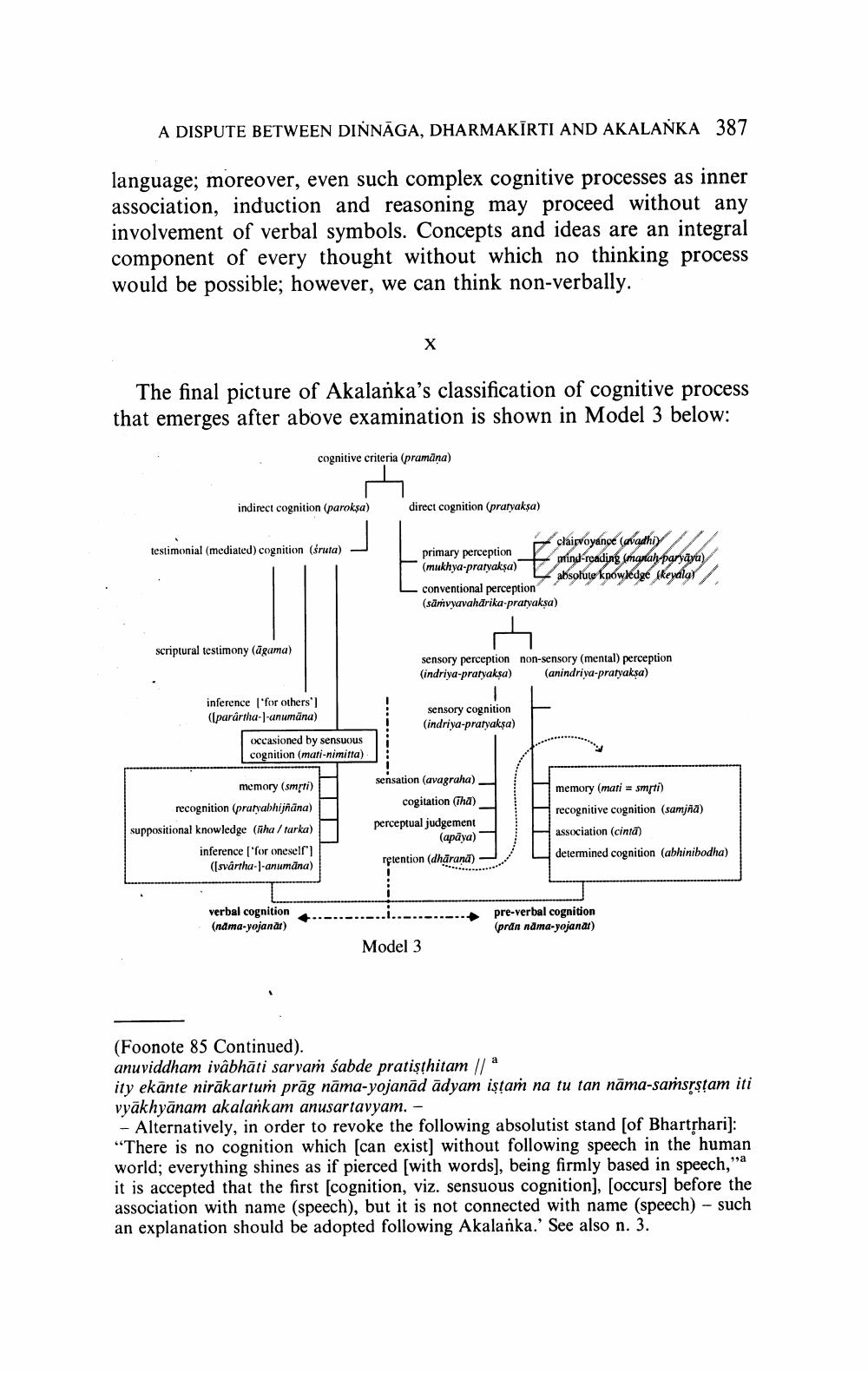________________
A DISPUTE BETWEEN DINNĀGA, DHARMAKĪRTI AND AKALANKA 387
language; moreover, even such complex cognitive processes as inner association, induction and reasoning may proceed without any involvement of verbal symbols. Concepts and ideas are an integral component of every thought without which no thinking process would be possible; however, we can think non-verbally.
The final picture of Akalanka's classification of cognitive process that emerges after above examination is shown in Model 3 below:
cognitive criteria (pramāna)
P indirect cognition (paroksa)
direct cognition (pratyaksa)
testimonial (mediated) cognition (śruta)
clairvoyance (avadhiy primary perception
mind-reading (manah paryaya) (mukhya-pratyaksa)
absoluto knowledge Xeyalar conventional perception (sāmvyavahărika-pratyaksa)
scriptural testimony (agama)
sensory perception non-sensory (mental) perception (indriya-pratyakşa) (anindriya-pratyakşa)
inference ('for others'] ([parártha-J-unumāna)
sensory cognition (indriya-pratyakşa)
occasioned by sensuous cognition (mati-nimitta)
memory (smrti) recognition (prutyabhijñāna) suppositional knowledge (liha / tarka)
inference ('for oneself
(svartha-|-anumāna)
sensation (avagraha)
cogitation (Tha) perceptual judgement
(apāya) retention (dhārand)
memory (mati = smrti) recognitive cognition (samjña) association (cinta) determined cognition (abhinibodha)
verbal cognition (ndma-yojanat)
pre-verbal cognition (pran nama-yojanar)
Model 3
(Foonote 85 Continued). anuviddham ivâbhāti sarvam śabde pratisthitam // * ity ekānte nirākartu prāg nama-yojanād adyam istam na tu tan nāma-saṁsrstam iti vyākhyānam akalankam anusartavyam. -
- Alternatively, in order to revoke the following absolutist stand (of Bharthari): “There is no cognition which (can exist) without following speech in the human world; everything shines as if pierced (with words), being firmly based in speech," it is accepted that the first (cognition, viz. sensuous cognition), (occurs] before the association with name (speech), but it is not connected with name (speech) - such an explanation should be adopted following Akalańka.' See also n. 3.




